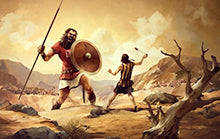My attention span is shot. Twelve gauge versus paper target ravaged. Blame it on the Internet, blame it on the Los Angeles weather, but there’s no denying that I can’t focus on a task at hand as long as I used to be able to. In an attempt to cure this “problem,” I’ve made it a goal to read a lot more. Not stats. Not blogs. Books. You know, the things that when you hold them under your nose kinda smell like the inside of a hardware store. Though I tend to lean toward fictional accounts – where stories are pulled from the criminal underbelly and everyone is an anti-her0 – I recently saw Malcolm Gladwell’s profile on 60 Minutes.
While Gladwell has long since been a literary rockstar- where he holds a staff writer’s position at The New Yorker and has several best seller’s that rest under a belt, that rests underneath that floppy, curly hair – I had never read anything by him. Sure, I was aware of his 10,000 hours theory from his book Outliers, but I always thought of him as an intellectual and that his prose was probably dense and hard to understand.
This is the scholarly tradition I was referring to in my book “Outliers,” when I wrote about the “ten-thousand-hour rule.” No one succeeds at a high level without innate talent, I wrote: “achievement is talent plus preparation.” But the ten-thousand-hour research reminds us that “the closer psychologists look at the careers of the gifted, the smaller the role innate talent seems to play and the bigger the role preparation seems to play.” In cognitively demanding fields, there are no naturals. Nobody walks into an operating room, straight out of a surgical rotation, and does world-class neurosurgery. And second—and more crucially for the theme of Outliers—the amount of practice necessary for exceptional performance is so extensive that people who end up on top need help. They invariably have access to lucky breaks or privileges or conditions that make all those years of practice possible. – Malcolm Gladwell – Outliers
I never bit on Outliers, but Gladwell was on 60 Minutes to hock his new creation, David And Goliath, which essentially uses the historical context of the classic battle between a “have and have-not” along with contemporary examples from the world of sports, education and more to explore how certain disadvantages are not actually detrimental. It’s enthralling. It’s inspiring. It’s what this generation of creators wants to hear. There’s never been a greater time to be in the “arts” – and I use that term loosely. I say “arts” as if to define the world for those who rely on creativity to pay the bills. Here are a couple keen takeaways from the book. 1. Power can come in other forms as well – in breaking rules, in substituting speed and surprise for strength. 2. The very thing that gave the giant his size was also the source of his greatest weakness...The powerful and the strong are not always what they seem. 3. More money stops making people happier at a family income of around seventy-five thousands dollars a year. 4. Citizens in happy countries have higher suicide rates than citizens of unhappy countries, because they look at the smiling faces around them and the contrast is too great. 5. An innovator who has brilliant ideas but lacks the discipline and persistence to carry them out is merely a dreamer.

